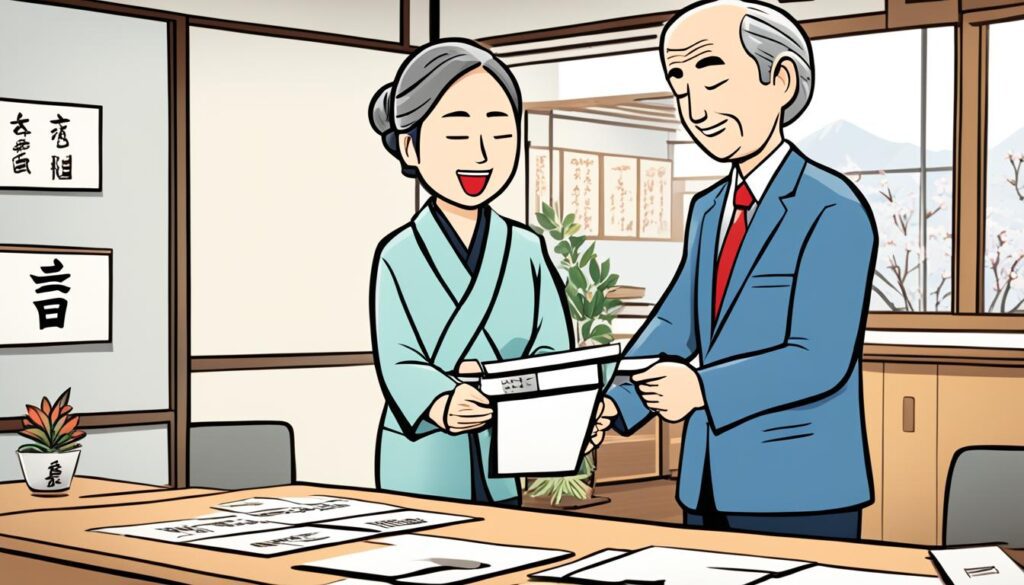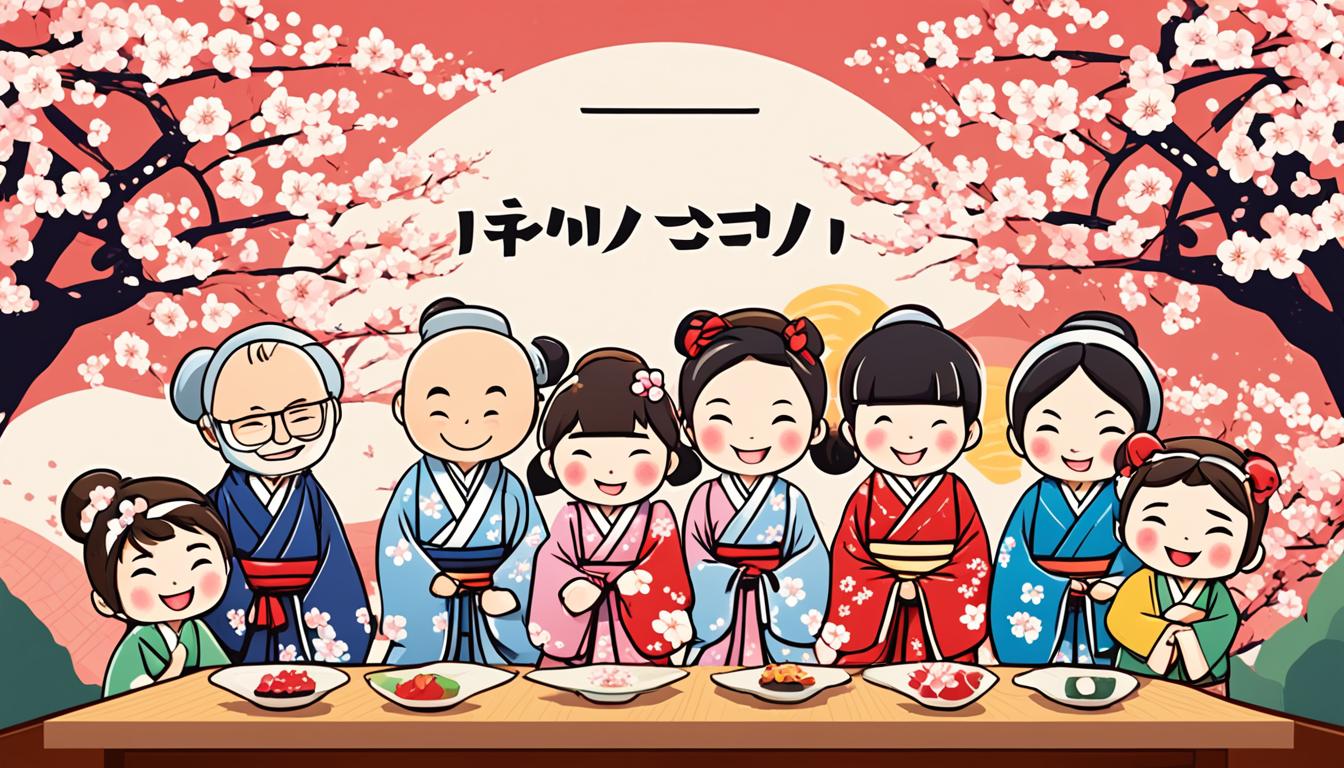Welcome to our quick language guide on how to say “have a good day” in Japanese. In this article, you will learn various phrases and expressions that can be used to wish someone a good day in Japanese. Whether you are planning a trip to Japan or simply interested in learning the language, these phrases will come in handy to greet and bid farewell to people in different situations.
Common Japanese Greetings
When it comes to greeting someone in Japanese, there are a variety of phrases and expressions that can be used depending on the situation and level of formality. In this section, we will explore some common Japanese greetings to help you navigate different social interactions and conversations.
Informal Greetings
If you’re meeting someone in a casual setting, such as friends or family members, these informal greetings can be used:
| Japanese | English Translation |
|---|---|
| こんにちは | Hello |
| やあ | Hi |
| おはよう | Good morning |
It’s important to note that these informal greetings are generally used among friends and family, so they may not be appropriate in more formal or professional settings.
Formal Greetings
When it comes to formal situations, such as meeting someone for the first time or interacting with someone in a business setting, these formal greetings are more suitable:
| Japanese | English Translation |
|---|---|
| 初めまして | Nice to meet you |
| おはようございます | Good morning |
| こんにちは | Hello |
Using these formal greetings shows respect and politeness in Japanese culture. It’s important to pay attention to the context and choose the appropriate greeting based on the situation.
Greetings When Leaving Home
When it comes to leaving home in Japanese culture, there are several greetings and phrases you can use to bid farewell to your loved ones or housemates. These expressions convey well-wishes and show respect for the household. Here are some commonly used Japanese greetings for leaving home:
| Japanese Phrase | English Translation |
|---|---|
| いってきます (Ittekimasu) | I’m off/I’ll go and come back |
| 行ってきます (Ikite kimasu) | I’m off/I’ll go and come back |
| またね (Matane) | See you later |
| 行ってらっしゃい (Itte rasshai) | Have a safe trip/ Take care on your way |
| お元気で (Ogenki de) | Take care/Stay well |
These phrases can be used interchangeably and convey similar meanings. Use them according to your familiarity with the person you are bidding farewell to and the situation. Now you’ll be well-equipped with the right words to say goodbye in Japanese as you leave home.
Greetings When Leaving the Job

When it’s time to move on from your workplace, it’s important to bid farewell to your colleagues and express your appreciation for the time you’ve spent together. In Japanese culture, saying goodbye in a professional setting is considered a respectful gesture.
Here are some Japanese phrases that you can use when leaving the workplace:
1. さようなら (Sayonara)
Sayonara is a formal and commonly used word to say goodbye in Japanese. It is appropriate when leaving a job and can convey your gratitude for the experiences you had with your coworkers.
2. お疲れ様でした (Otsukaresama deshita)
Otsukaresama deshita is a phrase used to express gratitude for someone’s hard work. When leaving a job, saying otsukaresama deshita to your colleagues shows appreciation for their efforts and acknowledges their contributions to the team.
3. ご苦労様でした (Gokuroosama deshita)
Gokuroosama deshita is another phrase used to thank someone for their hard work. This phrase is often used in a professional setting when leaving a job to acknowledge the efforts and dedication of your coworkers.
Remember, when saying goodbye in a professional setting, it’s important to be sincere and express your gratitude for the time you’ve spent working with your colleagues. These phrases can help you convey your appreciation and leave on a positive note.
Greetings When Leaving Someplace First
When you find yourself in a situation where you need to leave a gathering or event before others, it’s important to know the appropriate Japanese greetings to bid farewell. By showing your respect and gratitude, you can leave a lasting impression. Here are some phrases and expressions to use when leaving someplace first:
| Phrase | Translation |
|---|---|
| Sayonara minasama | Goodbye everyone |
| Dōmo, itte kimasu | Thank you, I’m leaving |
| Ja, mata ne | See you later |
These phrases are polite and can be used in both formal and informal settings. They convey your appreciation for the time spent together and leave a positive impression on those who remain. Remember to use a respectful tone and bow as a sign of courtesy when saying goodbye.
Other Related Phrases and Expressions
As you continue to explore the Japanese language and culture, there are several other phrases and expressions that can come in handy in various situations. Let’s take a look at a few of them:
1. Good Night: In Japanese, you can wish someone a peaceful night with the phrase “Oyasumi nasai.” It’s a polite way to bid someone farewell and wish them a good night’s sleep.
2. Good Sleep: To specifically wish someone a good sleep, you can say “Yoi nemuri o” or “Nemuranai yō ni.” These expressions convey the hope that the person will have a restful and rejuvenating sleep.
3. Good Luck: When you want to wish someone good luck, you can say “Ganbatte kudasai” or “Kōun o inotte imasu.” These phrases encourage the person and express your desire for them to succeed in their endeavors.
4. Good Job: To praise someone for a job well done, you can use the phrase “Yoku yatta!” or “Suteki na shigoto.” These expressions convey your appreciation for their efforts and accomplishments.
5. Having a Good Time: If you want to express that you hope someone has a good time or enjoys themselves, you can say “Tanoshinde kudasai” or “Yoi jikan o sugosu.” These phrases convey the sentiment that you want the person to have a fun and memorable experience.
Now, armed with these useful Japanese phrases, you can enhance your communication skills and make meaningful connections with native speakers. Practice using them in the appropriate contexts and enjoy immersing yourself in the rich cultural traditions of Japan.

